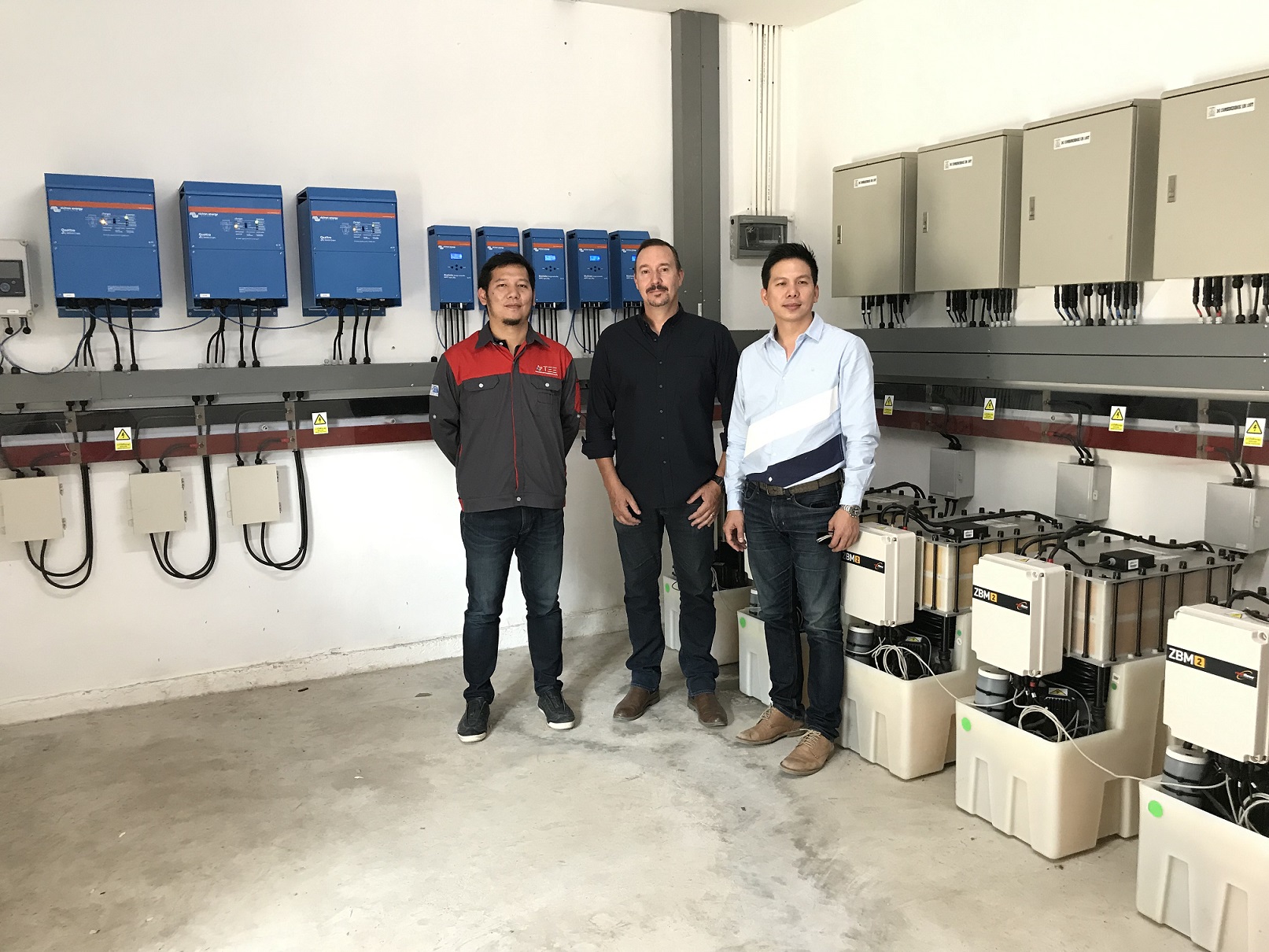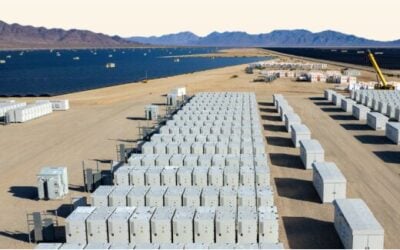
‘Hybridising’ energy storage systems by combining lithium-ion and flow batteries, shares the power and energy application workloads between the two types of battery and can prolong their life expectancy, a representative of Thai engineering firm TSUS Group has said.
A recently completed microgrid project at a rural village in Thailand, high up in a mountainous region in the country’s north, pairs lithium-ion batteries from an unnamed Chinese manufacturer with zinc-bromine flow batteries from Australian firm Redflow. In a Guest Blog for Energy-Storage.news this week, Redflow CCO Ben Shepherd wrote that, together with solar PV panels, the system can take care of the villagers’ energy needs at night or even cloudy days.
The village is now less reliant on diesel, or the future promise of extending transmission and distribution infrastructure over long and difficult distances. The general manager of TSUS Group, Redflow’s partner on the Thai government-backed project, said the pilot project enables Thai government agencies to assess how the technologies can work, both in combination and in their own right.
The world’s first grid-scale hybrid using flow energy storage with lithium-ion was announced a few weeks ago elsewhere, by redT, a company that makes vanadium redox flow energy storage systems. That follows an initial mid-sized commercial project supplied by redT at Monash University in Australia. redT CEO Scott McGregor described vanadium as the “workhorse” of the hybrid configuration, outputting energy steadily to meet the needs of capacity applications, with lithium used to perform high power and fast-response tasks, for the most part. McGregor’s discussion of the twin technology system and concept was included in our Editor’s video blog of 2018’s highlights.
Try Premium for just $1
- Full premium access for the first month at only $1
- Converts to an annual rate after 30 days unless cancelled
- Cancel anytime during the trial period
Premium Benefits
- Expert industry analysis and interviews
- Digital access to PV Tech Power journal
- Exclusive event discounts
Or get the full Premium subscription right away
Or continue reading this article for free
In Ben Shepherd’s blog, he argues that using the combination of different energy storage technologies can be a key enabler for emerging economies and populations in areas underserved by electricity networks to enjoy an access to energy that “significantly improves their quality of life”.
As for the combination, TSUS Group General Manager Tossapon Jirattipong told Shepherd that the Thai government agencies that will be assessing the project “expect that flow batteries should be the best for baseload management and, when demand gets higher, then lithium batteries can meet those peak demands. This configuration prolongs the life expectancy for both types of batteries.
“The hybrid energy storage system will also enable them to compare the efficiency and economic value of the two different battery types. Combining them produced the best economic case.”
Other hybrid system configurations are being used around the world, the vast majority also in the pilot or demonstration phase, including batteries of various types with ultracapacitors or flywheels and batteries paired with pumped hydro storage.
Read Ben Shepherd’s blog on Ban Pha Dan hybrid solar-plus-storage microgrid project: ‘Leapfrogging’ the grid: Hybrid lithium-flow in action at a remote Thai village microgrid’ here on Energy-Storage.news.





